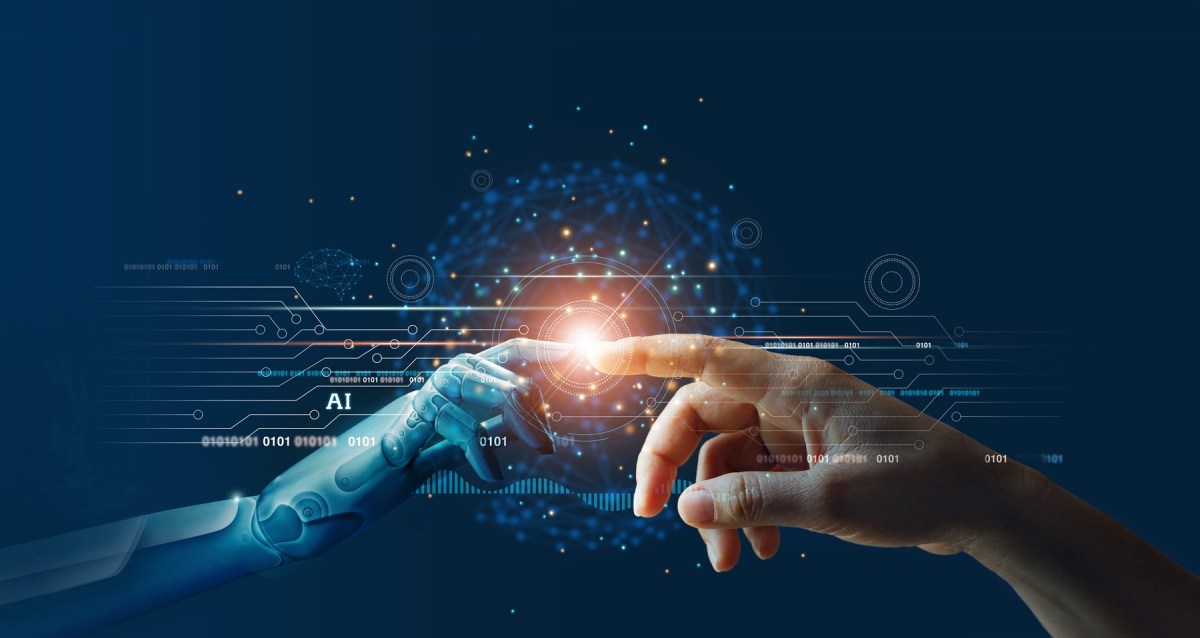AI-powered ‘virtual colleagues’ will be a key part of business teams by 2030, helping to combat skill shortages, according to predictions by leading artificial intelligence (AI) expert Dr Catriona Wallace.
She forecasts that in the next decade, AI will be so widespread that we will interact with it hundreds of times a day, including when we’re sleeping.
Digital workflow company, ServiceNow, has partnered with Dr Wallace to explore the technology trends and cultural shifts set to influence work and life in the next 10 years, and why AI will be at the heart of nearly everything we do.
The report highlights 2022 as a turning point for digital investments, with corporate spending on technology increasing by 65% compared to 20201, and advances in AI making it cheaper and more widely used.
The report also reveals four societal trends, including the emergence of ‘machine-mates’ (human-AI teams), the rise of hyper-personalisation, the ethical considerations that will drive AI-adoption, and the notion of issues diversity, where businesses will be more active in managing employee disagreement.
Human-AI teams – meet your ‘machine-mates’
Perceptions of AI will move from tools to teammates, with widespread virtual assistants’ helping people complete everyday tasks and work. Digital employees will be considered intelligent, valuable co-workers – and it’s coming soon. By 2025, machines will spend more time completing tasks at work than humans.
AI will also enable employees to be understood and treated in a similar way to customers, which will help increase productivity and wellbeing, as work is spread more evenly and effectively. Officeworks is one company already embracing this trend, with its AI virtual assistant ‘Penny’, helping employees resolve requests, faster.
Be yourself, know me and my digital identity
People will prioritise self-care and take ‘me time’ more frequently. Employers will be expected to know their staff better, appreciate them more, and help them find balance, for example by using AI tools to identify overworked individuals so managers can divert work. Brands and employers will be expected to support this. Post-pandemic, two distinct tribes are emerging, divided by how much, and when, they see technology as useful. Digital Experiencers will embrace new technology with few limits, while Organic Experiencers will demand more choice, rejecting digital-only models and preferring to pick and choose between analogue and digital touchpoints.
Ethical considerations will drive AI adoption
AI ethics will move from an academic discussion to business strategy. Currently, just 22% of Australians trust how organisations are implementing AI, yet 96% of executives say it is becoming pervasive. In coming years, regulators will step up pressure and take stronger action against irresponsible operators. Responsible use of AI will increasingly be required by law, with voluntary guidelines like the Australian Government’s Ethics Framework replaced with minimum required standards.
Issues diversity will redefine team success
Two in three Australians (61%) think people are incapable of having constructive debates about issues they disagree on. To bridge this, employers will embrace a “divided we stand, united we work” mentality. ’Agree to disagree’ will become the norm for societal issues like vaccinations, climate change, pandemics, and technology. Managers will need to focus on finding value in divergent perspectives. AI-based applications will help businesses navigate the divide with ‘pulse checks’ of employee sentiment.

